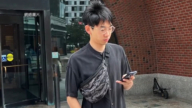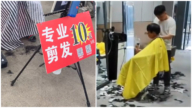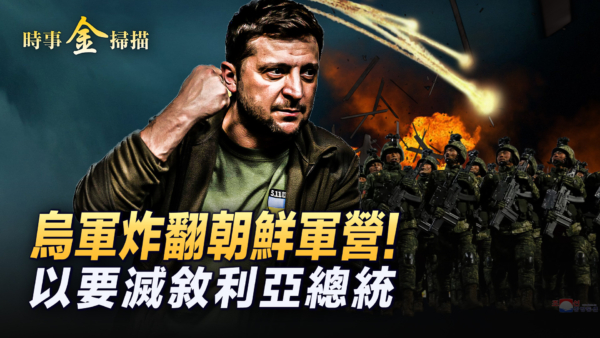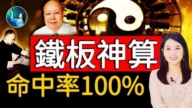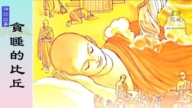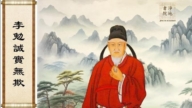【新唐人2012年11月24日讯】中科院博士生导师程代展,最近在博客写下3000多字的长信,对他的学生——清华博士生放弃科研的机会,选择当中学老师,感到惋惜与困惑。这封信很快被疯狂转载,社会上甚至引发了“中国为什么培养不出杰出的科研人才”的讨论。
程代展是中科院博士生导师,他在11月13号以“昨夜无眠,为了一个学生。”为题,在博客上写下长信,字里行间表达出对他学生萧杨(化名)放弃科研,选择执教中学,感到惋惜与困惑。他写道:“你这样做,中国甚至世界可能会失去一个优秀的科学家。”
萧杨曾在系统控制领域的国际顶级专业期刊(IEEE TAC)上,以第一作者的身份发表数篇长论文。中国系统控制领域的博士生导师,没有几人能在这本期刊上发表文章。
这封信引起网友的种种议论,如:“大材小用、科研界的损失”、“国家投入几乎白费了” 、 “太过现实的社会环境让人才流失”也有人认为萧杨有自由选择的权利,“中学老师的贡献不比高校科研人员低。”。
台湾精神健康基金会论坛组召集人陈彦玲:“在中共那种一言堂的管控之下,他真正的想法不见得能说出来,也有可能他发现需要有一些精神上的追求,他开始发现这些科研成就实际上被别人拿走了,他没有申冤的地方。当人挫败、发现没有希望的时候,他可能选择一条所有人非常惊讶的路。”
台湾精神健康基金会论坛组召集人陈彦玲还指出,中国传统重视人与人、人与天地之间的和谐,再加上“修齐治平”、“因果报应”等正统教育,使读书人眼界开阔、心胸宽广。但中共统治大陆后,人在精神层次的东西逐步被泯灭了,社会又极度不公平,人生价值观出现了扭曲,容易做出极端的事。
而大陆网友指出,在大陆讲的是关系,干得好不如关系好。
大陆网友:“说的是‘科技兴国’、人才强国,实际上对人才的打压是很严重的。愿意工作的、愿意干的,它打压,不工作、混的,他提拔。”
对于导师的不理解和网友的议论,萧杨18号在一个社交网站上贴出一封长信回复老师,他表示,他“已经厌恶科研了,执教中学感觉久违的轻松。”
萧杨的离职并非一时的头脑发热,是经过深思熟虑后的选择,这又引发了另一个讨论:“为什么中国的学校总是培养不出杰出的科研人才?”
“深圳当代社会观察研究所”所长刘开明指出,大陆大学学术的行政化、官僚化,没有学说自由和学术独立等环境,是导致“难出大师”的原因。
“深圳当代社会观察研究所”所长刘开明:“人文科学它必须是以马克思主义为框架,这就把大多数的人类的文明给排除在外,这就对人文学科研究有巨大的局限。同样,人文学科自由不能贯彻的话,自然学科基础的一些思维方法就会受到限制。”
刘开明还指出,学校只注重知识、不注重学生独立思考能力﹔社会需要的是“螺丝钉”,又怎能培养出优秀人才呢?
美国《华尔街日报》在今年9月发表一篇文章指出,中国在科学方面的创新贡献仅占1%,成就不仅与英、美、德以及欧洲诸国相差甚远,较其他文明古国也相形逊色。
世界知名数学家丘成桐教授曾经说过一个故事,中国一个本科生毕业的时候,就因为他的想法很独特,教授不让他读研究生。丘成桐坚持收为学生,后来这名学生到美国“哈佛大学”做了博士后,成了材。
刘开明表示,中国教育体系有“精神桎梏”、学术研究有“政治桎梏”,从49年后再没出过大师,也就不足为怪了。
采访/易如 编辑/宋风 后制/周天
Ph.D in Tsinghua University Teaches in a High School
Cheng Daizhan, a Professor in Chinese Academy of Sciences,
recently wrote a 3,000 characters letter on microblog.
It was to show his sympathy and confusion towards his Ph.D
student giving up research opportunities to become a teacher.
His letter was forwarded massively, and triggered a discussion
in the community on why China cannot cultivate talents on scientific research.
On Nov. 13th Cheng Daizhan published an article on his
microblog called “I was sleepless last night for a student”.
Showing his sympathy and confusion for his student, Xiao Yang,
to give up research and become a high school teacher.
He wrote, “You do so, and then China may lose
an outstanding scientist.”
Xiao Yang once published many long articles as the first
author on IEEE TAC, a top journal for systematic control.
Even for faculty members in this field, not many people
could publish articles in this journal.
This letter has triggered all kinds of discussions,
including “overkill, the loss of the research community”,
“the state investment is almost in vain",
“too realistic social environment causing the brain drain" ……
But some believe Xiao Yang also had the freedom of choice,
“the contribution of a high school teacher is no less than university researchers."
Chen Yanling, an organizer for the Mental Health Foundation
Forum in Taiwan: “Under the control of speeches by the Chinese Communist Party (CCP),
he could not speak out his true thoughts.
It is possible that he needs some mental pursuit,
or his research results were taken away by others.
But he had nowhere to appeal. When one got frustrated
and finds no hope, he may choose a way out surprising all.”
Chen Yanling also pointed out Chinese traditions emphasize
the harmony among human beings and between heaven and earth.
In addition, the orthodox education of cultivation and
retribution of karma also makes scholars broad-minded.
However, after the communists took over the power in China,
the spiritual contents were gradually destroyed.
The society is extremely unfair, so people’s values of life
were distorted, and they now easily go to extremes.
Netizens in China pointed out that in China
it is focused on people’s relationships. Good relationship is more important than hard working.
A Netizen in China: “The CCP is saying to strengthen our
country by science and technology and talented people.
However, the suppression of talented people is very serious.
Those willing to work are suppressed;
those who do not work, are usually promoted."
As the advisor did not understand and for netizens’ arguments,
Xiao Yang wrote back a long letter in reply on Nov.18th.
He said he hates research, and teaching in high school
gave him the easy feeling again.
Xiao Yang’s departure is not a fad, but a thoughtful choice,
which in turn led to another round of discussion:
“Why Chinese schools can’t cultivate outstanding researchers?"
Liu Kaiming, director of Shenzhen Institute of Contemporary
Observation pointed out,
in China an academic becomes administrative and bureaucratic,
and there is no freedom of doctrines, or independence environment.
This is the reason that it is difficult to cultivate masters".
Liu Kaiming: “Humanities disciplines must be based on
the Marxist framework,
which excludes most of the human civilizations and
had enormous limitations to the humanities research.
Similarly, if the humanities freedom cannot be implemented,
the natural sciences- based way of thinking will be limited."
Liu Kaiming also pointed out that schools focus only on
knowledge, without paying attention to develop the ability of students to think independently;
The society needs ‘screws’, how can it cultivate talents?
In September 2012, the Wall Street Journal in USA published
an article pointing out that China’s contribution in science innovation is only 1%.
That lack of achievement is not only far away from the results of
the UK, USA, Germany and European countries, but is also below the standards of ancient civilizations.
The world-renowned mathematician,
Professor Qiu Chengtong once told a story:
Once a Chinese student graduated with a bachelor’s degree.
Because his idea was unique, his advisor won’t accept him
in the graduate school.
Qiu Chengtong insisted on accepting him as a a student.
Later this student became a postdoctoral student in Harvard University in USA.
Liu Kaiming said, China’s educational system has spiritual
shackles, and academic research has political shackles.
There is no master appearing after 1949,
which is not surprising.







